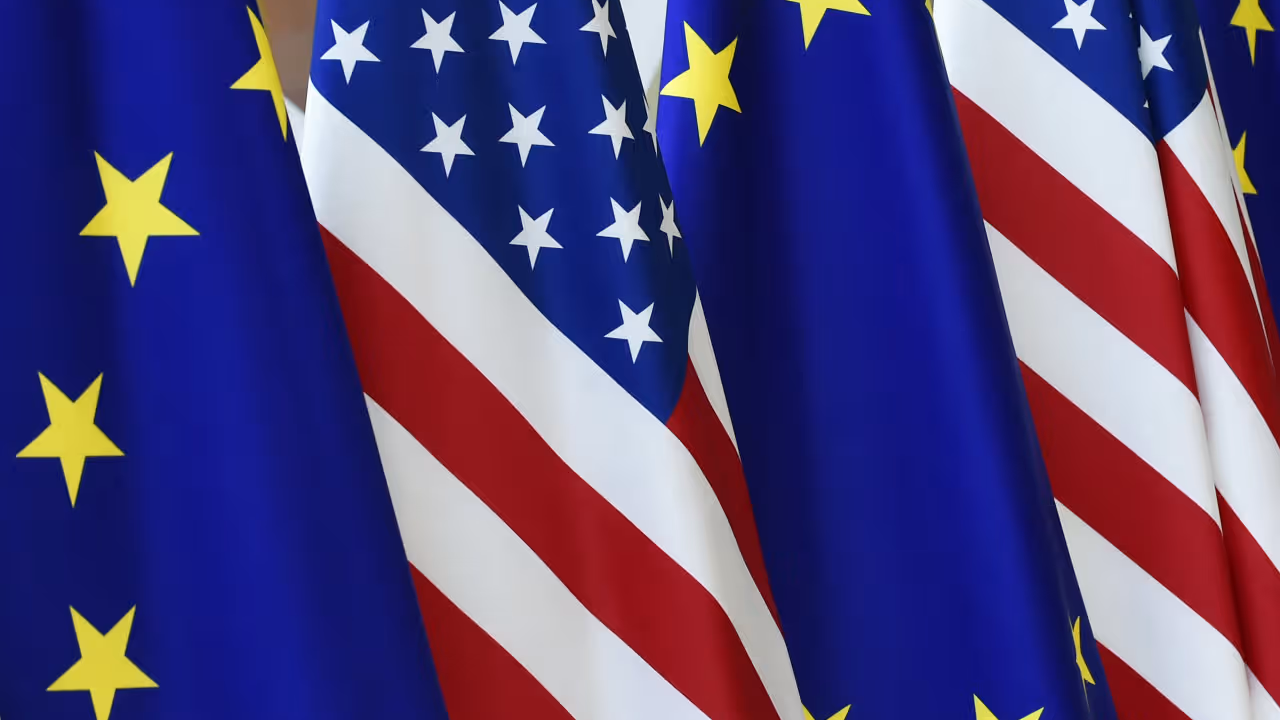Former U.S. President Donald Trump announced that he would delay the implementation of new tariffs on European Union goods until July 9.
This decision has brought a positive reaction in the financial markets. Soon after his statement, U.S. stock futures began rising, and European equity markets also moved upward, reflecting a sense of relief among investors.
This move is being seen as a temporary break from trade tensions between the United States and the European Union. Tariffs are taxes placed on imported goods, and they often increase the cost of products for consumers and businesses.
Trump’s earlier approach to international trade had been marked by aggressive tariff threats, especially during his previous term. However, the delay announced now gives businesses and investors a few more weeks to prepare and reduces some of the immediate economic uncertainty.
The global stock markets responded quickly. Futures on major U.S. stock indexes showed gains, which means investors expect markets to open higher. In Europe, major indexes like Germany’s DAX, France’s CAC 40, and the UK’s FTSE 100 all saw solid increases.
The market movement shows that investors are welcoming any sign of calm in global trade relationships.
Many experts believe this delay could be a strategy to avoid upsetting economic momentum. With inflation still being a concern and interest rates already high, adding tariffs now could put more pressure on consumers and businesses.
By delaying the tariffs, Trump might be trying to keep markets stable while still keeping his tough trade stance as an option in future talks with the EU.
This decision also matters politically. Trump, who is running for president again in the 2024 elections, may be trying to show that he can be firm on trade but also reasonable when needed. Postponing the tariffs gives him space to negotiate or adjust his position based on how things play out economically or politically.
Investors are especially sensitive to tariff news because trade policies can affect profits across many sectors—from technology and cars to agriculture and consumer goods.
If tariffs were added, they could raise costs and lower demand, hurting company earnings and stock prices. So, the delay has removed one big short-term risk, at least for now.
Market analysts say this isn’t the end of the story. The new deadline of July 9 is now something investors will watch closely. If the U.S. does go ahead with the tariffs after that date, we may see market volatility again. But if there is more dialogue or even a new trade agreement, that could lead to further gains.
The EU has not yet responded officially to the announcement, but officials in Europe are likely to use this extra time to hold discussions or prepare their strategies. Trade between the U.S. and the EU is a major part of the global economy, and any disruption could have wide effects.
For now, the stock market’s reaction shows relief. This delay has given breathing room to both businesses and investors. It also highlights how sensitive markets are to political and economic signals, especially when it comes to global trade.
In simple terms, Trump’s decision to delay tariffs on the European Union has brought temporary relief to the stock markets.
Investors are reacting positively because it reduces short-term risk and opens the door for more negotiations. But the story isn’t over yet. All eyes are now on what will happen by July 9.






